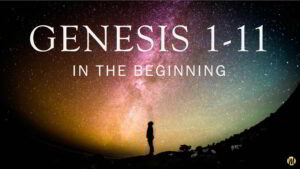 Genesis 1–11: God’s Design for Nationhood (Pt. 4/5)
Genesis 1–11: God’s Design for Nationhood (Pt. 4/5)
Category: Worldview
Genesis 1–11: God’s Design for Civilization (Pt. 3/5)
 Genesis 1–11: God’s Design for Civilization (Pt. 3/5) Creation Mandate
Genesis 1–11: God’s Design for Civilization (Pt. 3/5) Creation Mandate
God’s purpose for humanity is expressed in the Creation Mandate. Understood in context, it is to turn the rest of the earth outside Eden into Eden. It involves building a global civilization that is in fellowship with God and consistent with his will. After sin came into the world and humanity was driven out of Eden, the mandate could no longer be fulfilled as intended. The mandate was derailed but not defeated because God cannot be defeated. Through Christ the Creation Mandate is reclaimed so that it will be fulfilled as intended. This is seen in the Great Commission, which is about making disciples of all nations so that they observe everything Christ has commanded in every aspect of their life (a global civilization consistent with God’s will); and Christ is with disciples of all nations through the Spirit (a global civilization in fellowship with God). It is crucial to recognize that the Great Commission is the renewed Creation Mandate. For it means disciples of Christ cannot dichotomize the spiritual from the secular in any aspect of their life—a problem that has been plaguing modern Christianity.
You can view the full video at
Genesis 1–11: God’s Design for Civilisation (Pt. 3/5) Creation Mandate
Genesis 1–11: God’s Design for Personhood (Pt. 2/5)
 Genesis 1–11: God’s Design for Personhood (Pt. 2/5)
Genesis 1–11: God’s Design for Personhood (Pt. 2/5)
God created humanity “in his image.” The meaning of “the image of God” matters; it is our identity as human beings. Today there is a tendency in OT scholarship to confuse the purpose for being made in God’s image with the meaning of being made in God’s image. This video gets beneath the English translation and concludes that to be made in God’s image is to be like God in some ways—in terms of humanity’s God-like nature of personhood, qualities of love and justice, and abilities to communicate and create. All this is so that humanity could fulfill God’s purpose for them. Persons can think, reason and make decisions; God’s design for personhood is for humanity to think, reason and make decisions in a way not independent of God and his will. Humanity began to deviate from this design when Adam and Eve ate from the tree of the knowledge of good and evil. To appreciate why in modern civilization humanity is on a path to self-destruction we need to return to what happened in the garden of Eden.
Genesis 1–11: God’s Design for Humanity. Pt. 1/5
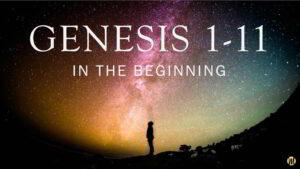 Genesis 1–11: God’s Design for Humanity. Pt. 1/5
Genesis 1–11: God’s Design for Humanity. Pt. 1/5
Reimagining Church and Christian Faith: An Evangelical Response
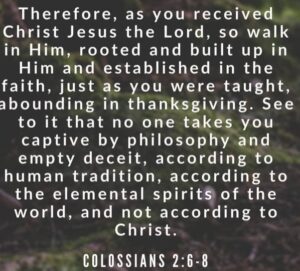
A. Missional Context
To spark interest in the recently published book, Christianity Reimagined, the following provocative questions were posed: What if you could rediscover the heart of Christianity’s spirituality – profound meaning, genuine connection, and a sense of the transcendent – without forcing yourself to accept a single belief that you just can’t? What if Christianity was never meant to be about rigid doctrines or blind belief, but about deep, transformative experiences – the kind you’ve had, the kind that truly shapes a life? These questions are designed to invite readers into the journey of reimagining Christianity for themselves.
The call to reimagine Church and Christian faith is frequently raised by activists from a spectrum of movements that includes liberation theology, postmodern and deconstructive theology, feminist and postcolonial theology, intercultural-religious dialogue and LGBT-Queer theology. These movements seek to reinterpret and modernize Christianity in order to make it relevant to perceived modern spiritual interests and sensibilities. Therefore, attention is directed toward revising traditional doctrines and church practices that are seen as obstacles to personal authenticity and social inclusivity.
The call to reimagine the Church and Christian faith is grounded in the belief that truth claims are inherently relative and must be deconstructed and reconstructed to align with emerging communities and evolving cultural contexts. The aim of this reimagination is to cultivate a faith that resonates with the “lived experience” of spiritual seekers, and to foster a church environment that serves as a “safe space” – a concept that originated within LGBT culture in the United States during the 1970s—for individuals who feel alienated or disillusioned by traditional church structures. Continue reading “Reimagining Church and Christian Faith: An Evangelical Response”
The Uncanny Superiority of Ecclesiastes over Its Counterparts (Ecclesiastes 5/5)
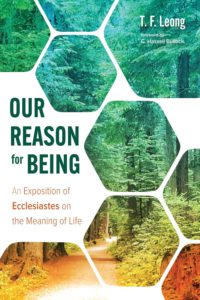 The Uncanny Superiority of Ecclesiastes over Its Counterparts
The Uncanny Superiority of Ecclesiastes over Its Counterparts
Kairos Podcast 7: Ecclesiastes and the Human Quest for Meaning (5/5)
Ecclesiastes is a speech “framed” by third-person references to the speaker, including a description of him and his teaching. In this description it is explicitly claimed that the speech is Scripture inspired by God. However, recent commentaries by even Evangelical scholars assume pessimism and contradictions in the speech. How then can it be Scripture inspired by God? The first video indicated that the supposed pessimism and contradictions in the speech are only apparent, not real. This final video seeks to corroborate the explicit claim that the speech is Scripture inspired by God by showing that the wisdom of Ecclesiastes is uncannily superior to that of its non-biblical counterparts.
Perceiving Coherence in Life Despite Undeserved Suffering (Ecclesiastes 4/5)
 Perceiving Coherence in Life Despite Undeserved Suffering
Perceiving Coherence in Life Despite Undeserved Suffering
Kairos Podcast 7: Ecclesiastes and the Human Quest for Meaning (4/5)
Discovering the Most Worthwhile Purpose for Living ( Ecclesiastes 3/5)
 Discovering the Most Worthwhile Purpose for Living ( Ecclesiastes 3/5)
Discovering the Most Worthwhile Purpose for Living ( Ecclesiastes 3/5)
Kairos Podcast 7: Ecclesiastes and the Human Quest for Meaning (3/5)
There are two conditions for experiencing the meaning of life. This video discusses the first, revealed in Ecclesiastes as living out God’s purpose for humanity. This condition is corroborated empirically by real-life human experience in a recent PhD thesis. One need not be a Christian to discover and live out this purpose and experience the meaning of life. However, Ecclesiastes also reveals that God will one day judge every person based on this purpose. Because of sin, no one can live out this purpose perfectly and so everyone needs God’s forgiveness. Hence Ecclesiastes points non-Christians to Christ no matter how meaningful their life may be.
Biblical Dualism and the Soul Between Death and Resurrection (the Intermediate State)
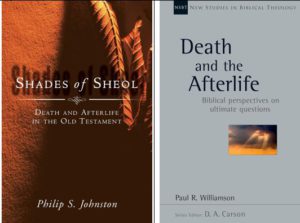 Death, Resurrection and Life Everlasting DRLE Pt.2
Death, Resurrection and Life Everlasting DRLE Pt.2
Death involves disintegration of a person’s vital power, cessation of bodily life, and separation of the body and the soul (nepeš): Gen. 35:18; 1 Kings 19:4). Does the soul continue to exist after the death of the person? The monist theologian’s answer is “no”. Monism argues that according to the Bible, a human being is not divided into separate parts, i.e. body, soul, and spirit, but he exists as a unified or holistic self. Since the soul and the body are just different aspects of a person, existence entails bodily existence. There is no possibility of disembodied existence of the soul after death. The purpose of this post is to show that monism contradicts the Bible which ascribes to the disembodied soul some forms of consciousness in the intermediate state between death and final resurrection.1This post focuses on the biblical teaching on the soul’s disembodied existence in the intermediate state. For a philosophical defence of the tenability of disembodied existence of the soul, see Paul Helm, “A Theory of Disembodied Survival and Re-embodied Existence,” Religious Studies (1978), pp. 15-26; Richard Purtill, “Disembodied Survival,” Sophia 12 (1973), pp. 1-10. Continue reading “Biblical Dualism and the Soul Between Death and Resurrection (the Intermediate State)”
Talk: Signs of Intelligent Design in a Fine-tuned Universe and the God Hypothesis.
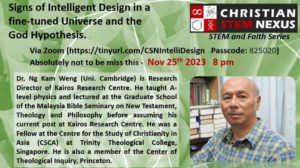
Link to video – Intelligent Design & the GOD Hypothesis
This talk was delivered originally at the Christian STEM Nexus Forum in Nov. 2023. It explains why the “God Hypothesis” offers an explanation of the origin of the universe better than chance in the light of new developments in contemporary cosmology. Issues discussed include (1) How the Universe came into existence, (2) Intelligent Design and Irreducible Complexity in fine-tuned universe.
1 The heavens declare the glory of God,
and the sky above proclaims his handiwork.
2 Day to day pours out speech,
and night to night reveals knowledge.
3 There is no speech, nor are there words,
whose voice is not heard.
4 Their voice goes out through all the earth,
and their words to the end of the world (Psalm 19: 1-4).
Originally published on 25 Nov 2023. Updated on 13 June 2024